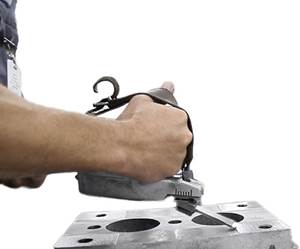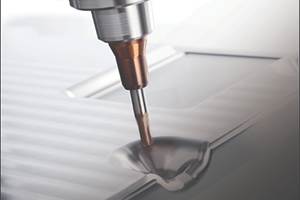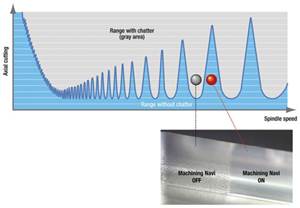Q&A with Robert Schad, Husky
Husky Injection Molding Systems' CEO speaks frankly about his company's success, the state of the industry and where moldmaking is headed.
Born in Germany in 1928 to a banker and a doctor, Robert Schad studied mechanical engineering for two years at the University of Karlsruhe before deciding to drop out and immigrate to Canada. "I was an impatient young man," he recalls. He arrived in 1951 with twenty-five dollars borrowed from an uncle and a letter of reference from family friend Albert Einstein.
In 1953, Robert founded Husky in a Toronto garage to build a snowmobile - called a Huskymobile. "It wasn't much of a snowmobile - it only worked on asphalt," he admits. "So I started making tools, dies and fixtures. My first mold was for Amalgamated Electric, for whom I'd done cutting dies. Soon, we were into building molds." He felt that injection molding machines were to slow to run his molds at their full potential, so in 1960 he began designing and building his own line of high-speed machines.
Today, Husky is a powerhouse producer of injection molding equipment for the plastics industry - the company's service and sales network supports customers in more than one hundred countries. "Our success is based on selling complete solutions - not just hardware," he notes. Schad is actively involved in the daily operations of his company - his priority remains to establish a lasting foundation - which includes a corporate culture that promotes excellence, innovation, leadership, teamwork and environmental responsibility. "It's our people, technology and values that set us apart and are key to our long-term success as a company," he emphasizes.
Schad also has established the Schad Foundation, which supports projects focused on solutions to environmental problems; and Earth Rangers, a program that teaches school children about wildlife and environmental responsibility.
The recipient of two honorary Doctorates from Canadian universities, Shad also has received a Doctorate in Engineering from Carleton (Ottawa, Ontario) and a Doctorate in Law from McMaster (Hamilton, Ontario). He shares his eminent wisdom on a few hot topics.
Q: What do you anticipate the next year to hold for the company?
A: We continue to invest significantly in specialized, automated equipment to perform critical operations. In fact, we have recently expanded our Vermont facility and will focus plate manufacturing there. We also have a strong commitment to R&D and innovation.
Q: What do you think about overseas moldmaking?
A: Ongoing capital investment in modern technology and equipment is crucial. The best equipment, coupled with automation will allow facilities to be competitive, no matter where they are located. Specialization is extremely important. Moldmakers need to develop specific expertise in a chosen market or application. Focus on what you do well and then capitalize on it in markets where this is valued. This is the key to sustainability. Finally, companies need to ensure they have global reach. Markets have no borders. You need to ensure your product and your visibility in our chosen market(s) is global.
Q: What are your predictions regarding the moldmaking industry as a whole?
A: We still think there are challenging times ahead for the industry. The key to overcoming these challenges and to long-term success lies in automation, specialization and ensuring global reach for your products and services. Companies must integrate automated solutions into their operations. It's the only way to stay globally competitive.
Q: What advice can you offer struggling moldmakers right now?
A: Automate or die. I said this back in 1969, and it is even more relevant today. The future lies in highly automated operations. Specialization. Again, you need to develop specific expertise in a chosen market or application. Ensuring global reach and visibility is also very important. Build global relationships! For smaller operations, this might be done via local companies (customers) with global reach. In the early days of our PET molds, we kept following our large customers like Coke and Pepsi and providing them with local support. Today, this local support infrastructure (our Technical Centers) is the backbone of our marketing efforts.
Related Content
The Benefits of Hand Scraping
Accuracy and flatness are two benefits of hand scraping that help improve machine loop stiffness, workpiece surface finish and component geometry.
Read MoreMoldmakers Deserve a Total Production Solution
Stability, spindle speed and software are essential consideration for your moldmaking machine tool.
Read MoreRevisiting Some Hot Runner Fundamentals
What exactly does a hot runner do? If you’ve been in the injection molding industry for any length of time, you might think the answer is obvious, but it is not.
Read MoreHow to Eliminate Chatter
Here are techniques commonly used to combat chatter and guidelines to establish a foundation for optimizing the moldmaking process.
Read MoreRead Next
Are You a Moldmaker Considering 3D Printing? Consider the 3D Printing Workshop at NPE2024
Presentations will cover 3D printing for mold tooling, material innovation, product development, bridge production and full-scale, high-volume additive manufacturing.
Read MoreHow to Use Strategic Planning Tools, Data to Manage the Human Side of Business
Q&A with Marion Wells, MMT EAB member and founder of Human Asset Management.
Read MoreReasons to Use Fiber Lasers for Mold Cleaning
Fiber lasers offer a simplicity, speed, control and portability, minimizing mold cleaning risks.
Read More.jpg;maxWidth=970;quality=90)







.jpg;maxWidth=300;quality=90)













